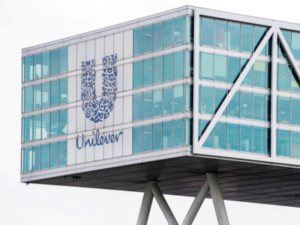 Getty Images
Getty ImagesHowever, the bulk of Unilever's business is gaining market share in the country and the company expects to do well once the situation improves, he said.
"The disease progression (in India) is a worry, and (it) is the only major country where we are still seeing exponential growth in cases at the moment," Jope said at the Barclays Global Consumer Staples Conference 2020. "The seven-day rolling average is about 70,000 new cases being diagnosed a day, although the cases per million is still half (that in) the US. So we are a little bit in wait-and-see mode in India."
For the quarter to June, Unilever had reported a 0.3% year-on-year increase in sales and blamed the flat growth on lockdown, restrictions and channel closures. Sales at India unit Hindustan Unilever (HUL) grew 4% in the quarter, helped by the GSK integration.
HUL growth slowed before COVID-19
Excluding the integration, HUL's revenue declined 7%, as the pandemic and the ensuing lockdown led to disruptions, although some segments were aided by pantry loading.
HUL's performance is considered a proxy for the broader consumer sentiment in India, and the unit accounts for about 9% of the London-headquartered multinational's global sales. The United States is Unilever's largest market.
"The market is definitely down but 85% of our business there is winning market share. And so the speed and agility of Hindustan Unilever means that when things bounce back, we do expect to do well," said Jope.
The company's market growth in India had been slowing before Covid-19 took hold and business was further impacted by the lockdown imposed at the end of March.
The nationwide lockdown began to be eased in May but localised closures have been imposed since then to control the spread of Covid-19.
The company had said the July-September quarter should be a better indicator of demand for its products but warned of turbulence in the economy.
A recent B&K Securities report said its recent channel check indicated that Hindustan Unilever's products, including soaps, detergents, sanitisers, tea and coffee, had witnessed strong sales but demand for skin care and cosmetics remained muted.
"Given HUL's competence, we are expecting volumes to be largely back to pre-Covid levels in the second quarter, though mix will be very different," said the report.
The maker of Dove shampoo and Rin detergent has been focusing on select popular pack sizes and said it will shed nearly 20% of products to focus on faster-selling ones.
Download The Economic Times News App to get Daily Market Updates & Live Business News.
Read More News on
Download The Economic Times News App to get Daily Market Updates & Live Business News.









 Get Unlimited Access to The Economic Times
Get Unlimited Access to The Economic Times
